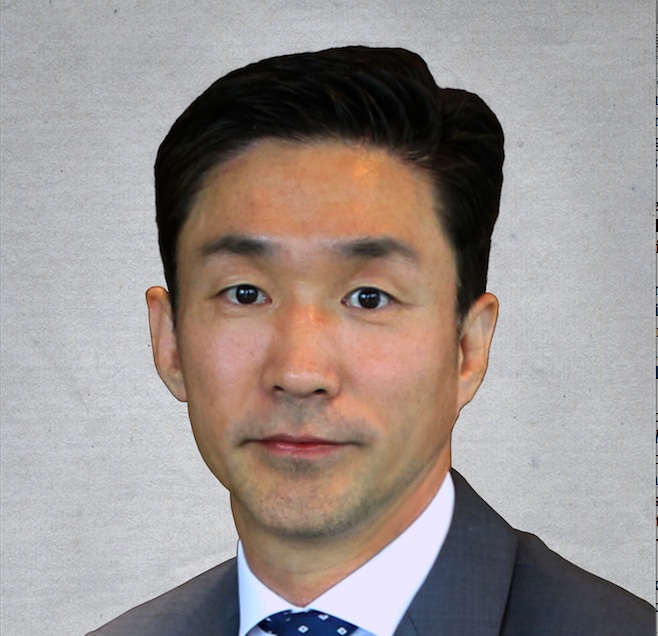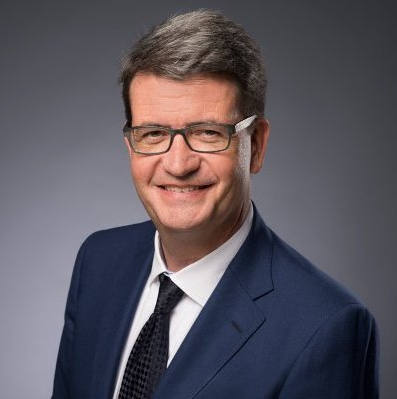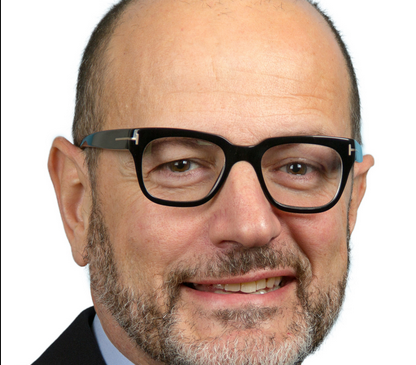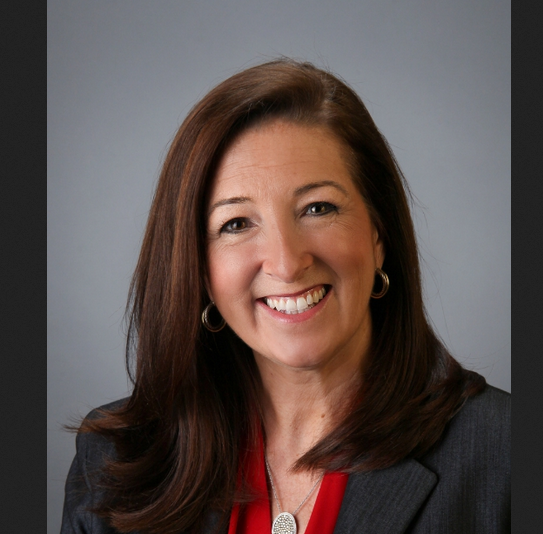Institutional Markets in Asia & Europe, Australia and USA Offshore: Next Steps in Mirae’s Global Expansion
| For Alicia Miguel | 0 Comentarios

Jung Ho Rhee, CEO at Mirae Asset Global Investments, explains in this interview with Funds Society all the details about its success in Asia and its international growth in markets as Europe, Asia, Latin America, Australia and USA, where the firm looks to expand also in the offshore market.
Mirae Asset Global Investments was established in 1997 at the height of the Asian economic and currency crisis…How has this timing marked the nature of the firm?
It may be counter intuitive, the financial crisis created tremendous opportunities for Mirae Asset. Mirae Asset Global Investments was established in 1997 during which regulation in Korea was relaxed following the Asian financial crisis. Our firm started off as the first asset management company in Korea when mutual funds were largely unheard of by the Korean population. With years of vigorous investor education, our firm created a market for our products. In other words, Mirae Asset transformed the asset management industry in Korea. Now, we are the largest asset management company in Korea by AUM. Our firm’s ambition is not only to establish a presence in Korea, but also provide global investors best-in-class financial products. To that, our firm set up overseas office in Hong Kong in 2003 which managed regional and global funds to be sold to Korean and global investors. Since then, we have set up offices in India and Brazil to bolster our onshore fund offerings. In 2007, we established our UK office to boost our SICAV fund distribution capability throughout Europe. As of end October 2015, Mirae Asset Global Investments Group’s AUM amounted to USD 77.6 billion. All I can say is that our firm is resilient and has grown exponentially amid adverse macro condition.
Since then, what are the main challenges in managing Asian assets? How has your investment philosophy evolved?
The main challenge in managing Asian assets is that Asia is a unique and diverse region, whose constituent countries and sectors all possess different attributes, are all at different levels of development and maturity, and are driven by different cultural trends and consumer habits. In order to be successful, asset managers need to possess deep understanding of and insights into the economies and culture of the region. Mirae Asset is a company with an Asian heritage. We have a strong team of investment professionals focusing on the Asian markets and seven offices across Asia-Pacific. Our investment philosophy is focused on identifying long-term winners that possess sustainable competitiveness, and our investment process is driven by our on-the-ground research process. This allows us to construct compact, high conviction portfolios that shun “benchmark approaches” and achieve real alpha for our investors.
Regarding your international expansion, it started in 2003. Beyond Asia, you have presence in UK, Colombia, Brazil, USA and Canada but, where else are you selling your funds?
We are selling our Luxembourg-domiciled SICAV funds into Asia, Europe and Latin America. Our India office offers local domiciled funds for Indian investors. In the US, we are selling our local domiciled funds to US investors, but we are thinking about expanding our SICAV offerings in the US through wholesale channels to non-US citizens.
What are going to be your next steps in your international expansion?
Our expansion plan is on multi-pronged approach. We will continue to grow assets through expanding geographically, strengthening our relationships with clients and investment consultants, as well as widening our product offering. Recently, we have hired Marko Tutavac as head of consultant relationships based in Hong Kong, and Chris Wildman as head of Australia sales in Sydney. As our firm had gained ground in wholesale distribution in Europe and Asia and now wanted to further grow its institutional business, which was reflected in the new hires.
Tutavac is tasked with cultivating the firm’s relationship with global investment consultants and ratings agencies in Asia. He was hired from Fidelity Worldwide Investment, where he was associate director for institutional business for Asia ex-Japan.
Wildman is responsible for driving the distribution of Mirae Asset’s fund particularly in the institutional marketplace. He was hired from AMP Capital, where most recently he was an institutional business executive. One of our recent product development initiatives is collaborating with Daiwa Asset Management to co-manage the Mirae Asset Next Asia Pacific Equity fund. The fund is domiciled in Luxembourg and Korea and we are now planning to domicile in Japan to cater for global investors’ appetite on Asia Pacific including Japan equities. We received a substantial amount of requests and interest regarding the launch of this fund from European investors. We will continue to explore expansion opportunities in different directions.
What products do you use for your international growth?
Our Ucits fund range has seen AUM triple in past two years to $2 billion, largely driven by flows from institutions and wholesale clients in Europe. We have seen significant interest in our SICAV funds globally. In particular, Mirae Asset Asia Great Consumer Equity Fund and Mirae Asset Asia Sector Leader Equity Fund have consistently outperformed the benchmark and gained traction among our clients. As I mentioned earlier, we collaborate with Daiwa Asset Management to co-manage the Mirae Asset Next Asia Pacific Equity fund. The fund is domiciled in Luxembourg and Korea and we are now planning to domicile in Japan to cater for global investors’ appetite on Asia Pacific including Japan equities.
Your AUM reach over $70 bn…What are your objectives for the coming years?
Our objective in the coming year is to continue our distribution efforts in SICAV funds across Europe, Asia and Latin America. As I mentioned earlier, we have recently hired our head of Australia sales, we will step up our distribution efforts in Australia.
Why did you choose a “team-based approach” model instead of betting on star fund managers or great individual talents?
We believe that a team-based approach, where a team of talented investment professionals work collaboratively, each focusing on and being accountable for their area of expertise is the best way to achieve long-term outperformance. This is borne out by our own experience and by independent academic research. Reliance on star investment managers may work for some asset management companies but we believe that it limits the scope, breadth and depth of investment ideas and is susceptible to personal bias. Furthermore, a structure dominated by a few key persons increases risks, whereas we believe that a team approach minimizes risks, including key man risks.
Risk analysis and factors like valuations, liquidity or governance are key in your investment philosophy, which one of these three factors is the biggest threat in Asia nowadays?
All of these issues are important for investors to consider. However, investors should be aware that Asia has seen rapid growth in the total investible universe of companies while continued efforts at improving market access, such as the recent Shanghai Hong Kong Stock Connect Scheme, have contributed to marked upgrades in liquidity. In addition, several Asian governments and regulators are making continued efforts to implement improvements to corporate governance. All of these are positive measures, which will contribute to Asia’s ongoing evolution as an accessible, efficient and transparent market for investors looking for stable and diversified investment opportunities. The advantage that Mirae Asset Global Investments offers is that we are a company with a unique heritage and presence in Asia – this means that we have a deep understanding of the Asian markets. Our on-the-ground research presence by our research analysts in Asia means that we are able to make first hand checks on issues related to liquidity and corporate governance before we make investments, and keep performing ongoing checks on all stocks in our portfolios. In particular, as signatories of United Nations Principles for Responsible Investment, Mirae Asset Global Investments has a firm responsibility to ensure that issues of corporate governance are fully taken into consideration in our investment decisions.
China is in historical key moment, in the midst of a transition to a consumer economy. How do you value the difficulty and implications of this process to China? And for the rest of Asia? Do you think it is necessary to be focused when investing in China?
China is in the midst of an unprecedented effort to correct structural imbalances in its economy, and the success of this great transition will depend on how effectively the central government implements reforms. The China market saw some intense periods of volatility in 2015 as investor sentiment swung from optimism to pessimism, and while we expect there to be some volatility in 2016, what is certain is that the country is likely to avoid a hard landing. There could be some near-term pain as the reforms take time to play out and growth will likely remain low but we do not believe the current situation is as severe as in the global financial crisis of 2008 or the Asian financial crisis of 1997.
What is important to consider is that in low growth macroeconomic environments such as this, the importance of bottom-up growth picking comes to the fore. There are many sectors in China that have strong prospects for growth, and there are many high quality businesses with sustainable competitive advantages, strong balance sheets and capable management teams that are reasonably valued. Therefore, for skilled asset managers such as Mirae Asset Global Investments who rely on fundamental analysis and bottom-up stock picking to achieve alpha, this market presents many opportunities. The case is the same for the wider Asian region. Some countries are seeing lower rates of growth as ageing demographics and highly leveraged households exert negative pressure. However, emerging markets experts such as Mirae Asset Global Investments do not consider all emerging markets countries as one homogenous pack – there are many countries in the Asian region where we see rich opportunity and which may actually benefit from the current situation. This includes India, which will strongly benefit from the collapse of commodity prices.
What can we expect from Emerging Markets, after the last developments in China?
Top experts from Mirae Asset think it is important not to be blinded by macroeconomic pictures. Asia still provides ample investment opportunities. There has been a lot of volatility and things have happened so fast. After recent market correction, valuations of Asian equities become more attractive. This environment offers good opportunities to exploit. A bottom-up approach is key and we like selected stocks in consumer, technology and healthcare sectors.
Is it the moment to invest again in these “less favoured” markets, against other developed markets?
As mentioned above, China needs to correct some distortions in its economy and there will be a lot of deleveraging that needs to be performed. The “Old China” sectors which traditionally fueled China’s growth in the past will see some near-term pain. Growth in the economy will undoubtedly slow. However, for an US$11 trillion economy, growth at 3 to 4% overall is still reasonable and higher than some developed markets. Furthermore, there are many sectors in what we call the “New China” economy that offers excellent growth opportunity for investors. This includes investment themes such as the continued growth in IT services, healthcare services and underpenetrated financial sectors such as insurance. This is also true for other emerging markets. Commodity producers will no doubt suffer a downturn at least in the short run, but several emerging market countries will benefit from cheaper energy ad commodity prices, while countries such as Philippines still benefit from strong demographics and economic fundamentals. We still believe that Asia will drive the world’s economic growth in decades to come. Hence, it is important for investors to consider making an allocation to Asia in their portfolios.
What about alternative investments? Are you trying to boost this business globally? What could this provide to a Real Estate or Private Equity investor in Europe or America?
Mirae Asset Global Investments is considered to be a pioneer in regards to alternative investments in Asia. We were the first company to launch private equity funds in Korea, and introduced the first real estate fund in Korea as well. Today, we have an extensive portfolio of private equity and real estate holdings and manage various forms of alternative products spanning the full spectrum of asset classes. We also offer a diverse range of Asian hedge fund products that invest in more plain vanilla financial instruments such as equities, fixed income and derivatives. These aim to deliver absolute return type returns. We want to be a global business partner to all of our current and prospective clients – we recognize that our investors have a diverse range of unique investment needs, and we always aim to cater to those needs by driving innovation and diversity in our product line-up.






